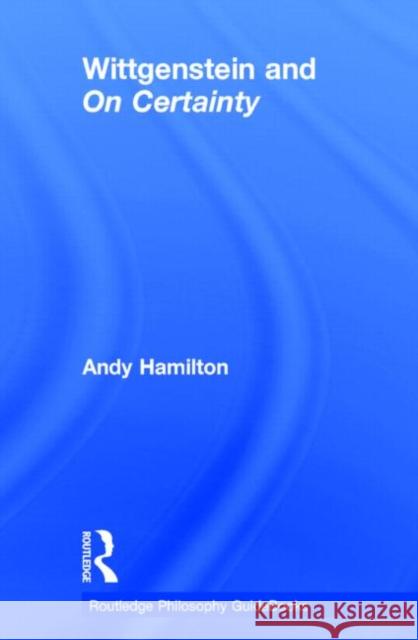Routledge Philosophy Guidebook to Wittgenstein and on Certainty » książka
Routledge Philosophy Guidebook to Wittgenstein and on Certainty
ISBN-13: 9780415450751 / Angielski / Twarda / 2014 / 340 str.
Routledge Philosophy Guidebook to Wittgenstein and on Certainty
ISBN-13: 9780415450751 / Angielski / Twarda / 2014 / 340 str.
(netto: 653,03 VAT: 5%)
Najniższa cena z 30 dni: 604,49
ok. 16-18 dni roboczych.
Darmowa dostawa!
Ludwig Wittgenstein is arguably the most important philosopher of the twentieth-century. In On Certainty he discusses central issues in epistemology concerning the nature of knowledge and scepticism. The Routledge Philosophy Guidebook to Wittgenstein and On Certainty introduces and assesses: Wittgenstein's life and the background to his later philosophy the central ideas and text of On Certainty, including its links with the arguments of G.E. Moore and its discussion of some fundamental issues in the theory of knowledge Wittgenstein's continuing importance and influence on contemporary philosophy. This GuideBook is essential reading for all students of Wittgenstein, as well as those studying epistemology and philosophy of language. It considers the place of On Certainty, Wittgenstein's final work, in his late philosophy. On Certainty addresses a neglected category of propositions discovered by G.E. Moore; for Wittgenstein they make up a world-picture, and challenge his career-long view that there is a clearly-defined category of empirical propositions.The GuideBook offers a dynamic interpretation of world-picture propositions, as subject to transformation and yielding alternative world-pictures. It relates them to On Certainty's critique of scepticism, developing Wittgenstein's critique of the sceptic's challenge as self-undermining. Its combative yet therapeutic interpretation of On Certainty locates within an opposition between Kantian and Humean naturalistic standpoints. It offers a critique of quietism, and of the resolute reading of nonsense, and concludes by showing how On Certainty is a classic within a humanistic conception of philosophy, essentially open to a range of interpretations.











